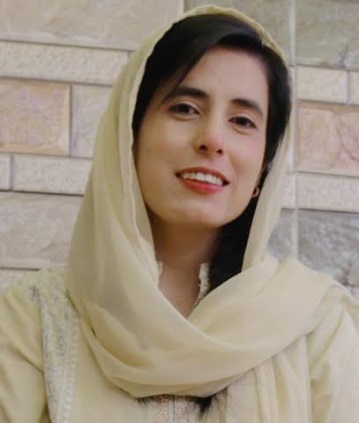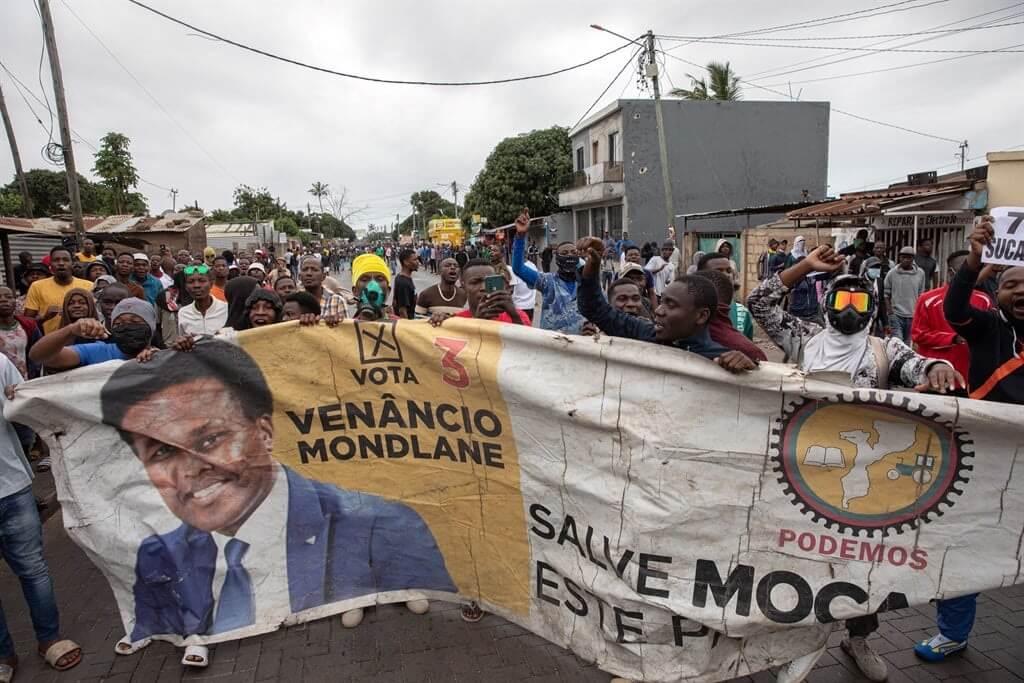By Shahzadi Irrum
Mozambique is teetering on the brink of chaos. The country is already reeling from a brutal jihadist insurgency, and now it’s facing the violent fallout of contentious elections.

Widespread protests have swept across southern African countries – fueled by the movement calling for a complete departure from the status quo and a move towards a fundamentally new and transformative approach. The population is seething with frustration over the government’s brutal crackdown, and they are clamoring for an end to the ruling party’s half-century stranglehold on power. However, this crisis goes beyond politics – which represents a generational struggle for the future. Here is the crucial question: what’s sparking the unrest, and how might it shape the country’s future trajectory?
Mozambique has experienced simmering unrest since the October 9 presidential elections, won by Daniel Chapo, the candidate from the ruling FRELIMO party – a political entity that has governed the country since gaining independence from Portugal. However, the opposition PODEMOS party, led by Venancio Mondlane, cast doubt on the poll’s credibility, alleging that Chapo’s victory was secured through widespread irregularities. Citizens supporting runner-up Venancio Mondlane – a well-liked figure among youth – have also rejected the poll’s results, labeling them unfair and rigged. The disputed election has sparked widespread protests, with deadly clashes between security forces and demonstrators.
In response to the violent protests, police in the capital Maputo, and other cities have responded with lethal force which resulted in casualties. Opponents claim that police have used tear gas, dogs, rubber bullets, and in some cases live ammunition to quell the protests. The unrest resulted in security forces shooting over 300 people, killing more than 100, including innocent children and bystanders, and arbitrarily arresting or detaining thousands. The situation took a darker turn when unknown assaulters brutally assassinated two of Mondlane’s close associates. One of them was a lawyer and advisor, Elvino Dias, who was preparing to mount a legal challenge to the election results, and a party representative, Paulo Guambe, while traveling together in a car in Maputo.
Meanwhile, protesters have escalated their demonstrations, they have set fire to police stations and ruling party offices, in addition to targeting government officials. Despite the violent turn of events, both Chapo and Mondlane seem unwilling to compromise, with Mondlane stating that he is willing to engage in talks with the government, but only if his victory in the presidential election is recognized and the government implements reforms such as anti-corruption measures and affordable healthcare. The protests are likely to persist until these demands are met.
The underlying causes of the unrest can be traced to the deep-seated issues of corruption, civil war, authoritarianism, and socio-economic stagnation that have plagued Mozambique for decades. The country’s history of corruption, including the notorious billion dollar “Tuna Bond Scandal” has nearly crippled the economy and increased poverty on a massive scale. Furthermore, the government’s inability to effectively address the insurgency linked to Ansar al-Sunna and Islamic States in Cabo Delgado, and its reliance on foreign military troops, has further eroded trust in the government. The recent elections, marred by allegations of electoral fraud, have poured fuel on the fire, particularly among youth disillusioned with the lack of democratic freedom and the government’s tight grip on power. Many view the government as a puppet regime of Portugal and other major powers, further exacerbating the sense of disillusionment and frustration.
After understanding the entire context, it becomes clear that despite gaining independence from Portugal, there has been no significant betterment in the lives of Mozambique’s people. For centuries, the same party has dominated the power structure, which is a clear indication that the country is still under foreign domination. Such powers continue to install governments of their choosing, which has rightfully made the people frustrated. This frustration is a warning sign of a potential crisis, which can further exacerbate the electoral dilemma.
The future of the country appears bleak, especially if the FRELIMO party is given another chance. This could take the country back into the depths of destruction, potentially giving rise to a civil war so horrific that the horrors of 1977 would seem insignificant. While it may seem like a tense political moment right now, in reality, it could be the precursor to a far more devastating conflict that could not only drown the nation in rivers of blood but also rewrite Mozambique’s history in the most tragic way.
Author: Shahzadi Irrum – Assistant Research Fellow (Balochistan Think Tank Network, Quetta).
(The opinions expressed in this article are solely those of the author and do not necessarily reflect the views of World Geostrategic Insights).
Image Credit: AFP







